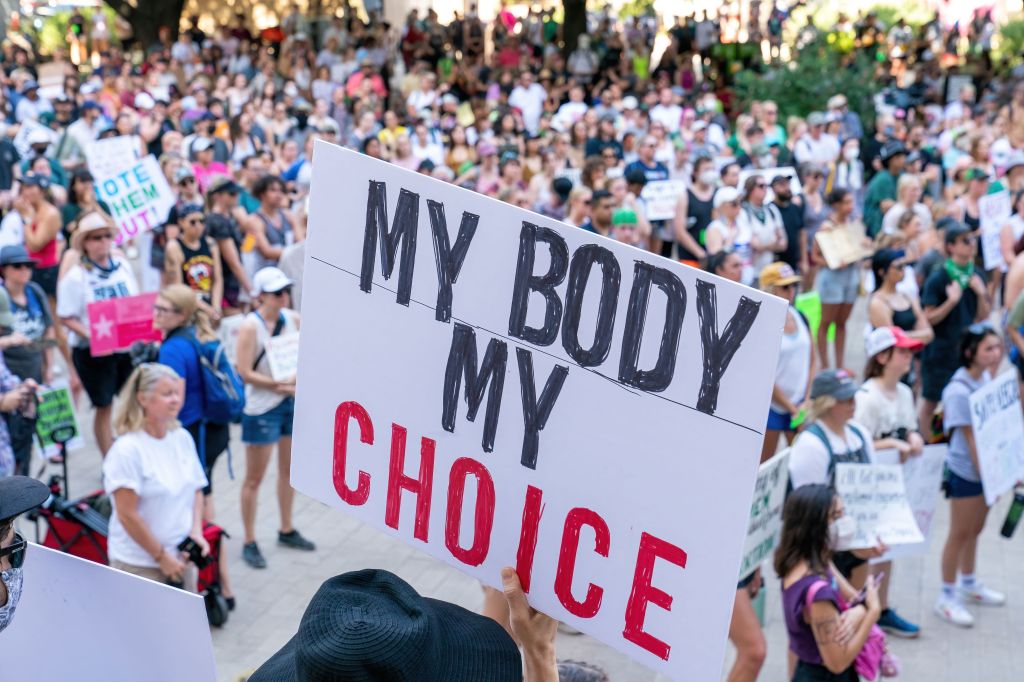
An unprecedented lawsuit in Texas seeks to undo the government’s approval of a common abortion drug — and if it gains traction, it could have serious repercussions for abortion access in pro-choice states, too. Here’s everything you need to know about the latest attack on reproductive rights in America.
As The Texas Tribune reported, the lawsuit was filed last November by the Alliance Defending Freedom, a noted right-wing hate group, on behalf of four anti-abortion organizations in Texas. The case revolves around the use of mifepristone, one of two drugs prescribed by doctors for a medicinal alternative to surgical abortions. It is often paired with another drug called misoprostol for a two-step protocol.
Mifepristone was green-lit by the Food and Drug Administration (FDA) in 2000 and has been used safely for more than 20 years. However, the plaintiffs in this lawsuit want the drug’s approval revoked, claiming (rather baselessly, according to activists and legal experts) that the federal government has purposefully ignored harmful side effects. If they win, it would impact the pill’s availability nationwide, including in pro-choice states.
More than 50 percent of abortions in the United States are performed using mifepristone and misoprostol. Nixing the former option could make it more difficult for pregnant people to obtain medical abortions, especially in anti-abortion states, where surgical abortions are now severely restricted or banned altogether.
Abortion advocates are sounding the alarm about this seriously scary litigation with a few important caveats. In the unlikely case that mifepristone were un-approved, the other abortion pill, misoprostol, would remain on the market. And you can have a perfectly safe medical abortion with misoprostol alone.
The good news? Legal experts don’t expect think this is case is air-tight by any means. Roe v. Wade, the Supreme Court ruling that guaranteed abortion access nationwide for nearly 50 years, was overturned last June, granting states the power to restrict or ban the procedure. However, states were not empowered to approve the use of new drugs. That power belongs to the FDA.
Xavier Becerra, secretary of the Department of Health and Human Services (HHS), said the Justice Department (DOJ) is closely monitoring the Texas lawsuit.
There could be a decision as early as next week — and with ultra-conservative federal Judge Matthew Kacsmaryk, a Trump-era appointee, making the call, the outcome is uncertain.
“We are vigorously defending the FDA in unprecedented litigation that is seeking to withdraw mifepristone from the marketplace — an action that would work severe harm to all who rely on the medication,” Associate Attorney General Vanita Gupta, who heads up DOJ’s reproductive task force, said in January, per The Tribune.
Abortions are safe, common, and nothing to be ashamed of. Unfortunately, Roe v. Wade‘s shocking reversal last summer drastically changed the landscape of abortion access in America. According to Axios, a total of 17 states have banned or restricted the medical procedure. That includes Texas, which began enforcing a pre-Roe ban on August 25.
One JAMA study from 2022 found that one-third of Americans who can get pregnant now have to travel more than an hour away to reach their nearest abortion provider.
Before you go, read these powerful stories from celebrities who opened up about their abortions:

Source: Read Full Article
